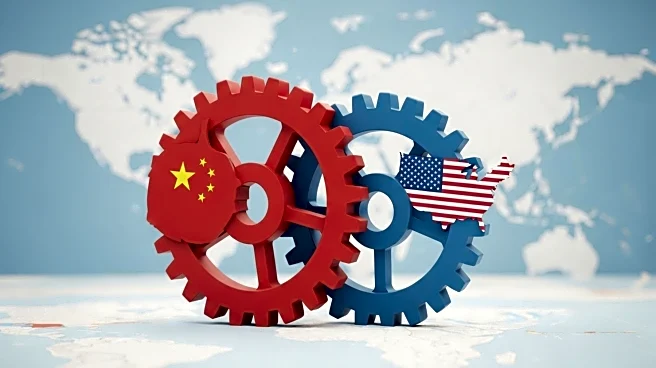What's Happening?
China has called on President Trump to retract his recent threat of imposing a 100% tariff on all Chinese imports into the U.S. This escalation follows China's decision to tighten restrictions on rare earth exports, a critical resource for electronics. The Chinese Ministry of Foreign Affairs, through spokesman Lin Jian, emphasized the need for the U.S. to correct its practices, warning of resolute measures to protect China's interests if the U.S. proceeds with its plans. The trade war has seen both nations leverage various aspects of their economic relationship, including restrictions on imports and retaliatory port fees. Recent data indicates a significant drop in Chinese exports to the U.S., marking a 27% decline in September compared to the previous year.
Why It's Important?
The ongoing trade tensions between the U.S. and China have significant implications for global economic stability. The imposition of tariffs and restrictions can disrupt supply chains, increase costs for consumers, and impact industries reliant on international trade. The decline in Chinese exports to the U.S. reflects the broader economic impact of these tensions, potentially leading to increased prices for goods and reduced availability of critical materials. Both countries face economic challenges, with potential repercussions for global markets and economic growth.
What's Next?
The situation remains fluid, with potential for further negotiations or escalations. Both nations may seek diplomatic solutions to avoid further economic damage. The U.S. and China could explore alternative trade agreements or concessions to mitigate the impact of tariffs. Stakeholders, including businesses and policymakers, will closely monitor developments to assess the potential for resolution or continued conflict.
Beyond the Headlines
The trade war highlights broader geopolitical tensions and the strategic importance of rare earth materials. The U.S. and China may need to address underlying issues related to trade imbalances and technological competition. Long-term shifts in trade policies could influence global economic dynamics and the balance of power between major economies.









